每日观察:关注韩国解禁Android Market游戏内容(11.30)
1)据pocketgamer报道,继对苹果App Store游戏产品解禁之后,韩国政府近日开始也开始向Android Market游戏内容开放这项政策。
Disimo不久前的调查报告显示,该政策出台不到一周时间,游戏内容在韩国App Store前100名免费应用中的比例就达到43%。
谷歌高管Eric Chu表示,现在是游戏开发者针对韩国市场推出本土化应用的大好时机,开发者现在可访问Android Market开发者控制系统,为自己的应用添加韩国这一发布地区,并设置韩元这种交易货币选项。
2)美国无线通信和互联网协会(简称CTIA)和娱乐软件分级委员会(简称ESRB)日前宣布推出一个新的手机应用自愿分级系统,支持应用商店以此为标准,将应用设置为与电子游戏产品类似的“E”(所有人)、“T”(青少年)和“A”(仅限成人)这三种级别。
威瑞森、AT&T、Sprint、T-Mobile和US Cellular等主流运营商应用商店已支持该系统(游戏邦注:微软随后也将加入这一行列),但苹果和谷歌这两大应用商店巨头却并不在此列。
谷歌表示他们已经投入大量精力完善Android Market评级系统,目前在全球运行也十分顺利,他们没有必要再采纳另一个评级系统。
当开发者向加入ESRB分级系统的应用商店提交产品时,他们需要确定一些关于其应用内容的选项,例如是否包含暴力或色情元素,以及是否支持用户创造内容等。这种评级数秒种内就能完成,获得评级的应用可分配得到一个识别码,该识别码可通用于这款应用入驻的其他应用商店。
ESRB将随机对应用进行复核抽查,如果发现某款应用评级不过关,就会改变其评级情况,并通知其开发者和应用商店。
3)尼尔森最新数据表明,Android和iOS在美国所有投入使用的智能手机中所占比例高达71%,在过去30天曾下载应用的智能手机用户中,iPhone和Android用户占据83%。
观察者认为,这两者在智能手机领域遥遥领先的一大原因是,它们拥有强大而健康的应用市场,Windows Phone 7或黑莓等其他竞争对手若想从中分羹,就需要在这个环节上多下功夫。
4)Forrester Research最新调查报告显示,今年第三季度有25%的受访者表示希望拥有一部运行Windows平板电脑,这一比例明显低于第一季度的46%。
诺基亚虽然也计划发布Windows Phone 8平板电脑,但该设备到明年夏天才会问世,据称三星也打算与微软合作推出Windows 8平板电脑。
报告指出,由于微软进军这个市场的时间太迟,Windows平板电脑或将面临严峻挑战。尽管微软设备制造商有意推出这种产品,但该设备用户支持率在过去9个月中已严重下滑。任何一个行业的产品策略家都知道抢占先机的重要性,否则就可能让产品失去竞争筹码。
5)Unity Technologies公司近日宣布其3D游戏开发平台Unity注册用户已突破75万,其中有26%(约20万)属于月活跃用户。
该公司还宣布Unity Web Player装载量已达8000万次,比去年的4000万次翻了一倍。
Unity工具包括一个编辑器和针对掌机、PC、移动设备和平板电脑的游戏引擎,但目前并不支持Windows Phone 7平台,因为后者是一个“相对封闭的系统”。
6)据techcrunch报道,谷歌最近已注意到Android Market存在开发者冒充知名开发商或推出山寨版热门游戏的现象,正着手针对这一问题采取措施。
这些开发者仿冒的游戏包括《Alive 4 Ever》、《Call of Duty Zombies》《Angry Birds 3D》、《Resident Evil 4》、《Siege Hero》等,甚至还有名为“Rovio Mobile Ltd”的开发商以“Rovio”的名号自居,购买了这些仿冒游戏的用户发现上当后也无法获得退款。
这些仿冒应用的内容描述一般是抄袭其他应用的内容,多数提供的是无效的开发商网站链接。(本文为游戏邦/gamerboom.com编译,拒绝任何不保留版权的转载,如需转载请联系:游戏邦)
1)Android Market games category ban lifted in South Korea
by Matt Sakuraoka-Gilman
The Korean mobile gaming industry is about to receive another boost as the ban on the Android Market games category has been lifted.
The mobile gaming touchpaper seems to be aflame in the country – Distimo recently highlighted the palpable impact of the recent lifting of the ban on games in the Apple App Store.
In less than one week, 43 percent of the top 100 free apps were games.
Android game developers will be looking for a similar surge in downloads now that Android consumers will be able to access them through native accounts.
Won-tan gaming
“If you are a game developer, now is the time to localise your game resources, app descriptions, and marketing assets to take advantage of this new opportunity,” read a statement from Eric Chu, of the Android Developer Ecosystem.
“When you are ready, please visit the Android Market developer console to target your app for distribution in South Korea and set prices in Korean Won (KRW). If you don’t want to distribute to Korea right away, you can also exclude it.
“With the huge popularity of games on Android and the convenience of direct carrier billing in Korea, we expect to see a jump in game purchases and downloads in the weeks ahead. For game developers worldwide, it’s “game on” in Korea!”(source:pocketgamer)
2)New CTIA-ESRB Ratings For Mobile Apps May Not Have Teeth Without Apple, Google
Kim-Mai Cutler
The Wireless Association (CTIA) and the Entertainment Software Rating Board (ESRB) just announced out a new voluntary ratings system for mobile apps. Apps can now carry maturity ratings that will be similar to the ones issued for video games like ‘E’ for ‘Everyone,’ ‘T’ for ‘Teen,’ and ‘A’ for ‘Adults Only.’
All of the major carriers — Verizon, AT&T, Sprint, T-Mobile, US Cellular — and then Microsoft are jumping aboard to support it in their respective stores. But Apple and Google are conspicuously absent, meaning that these ratings may not find traction in the most important app stores of them all: iTunes and Android Market.
Update: Google says it doesn’t really see a need for another ratings system. The company tells us, “We’ve put a lot of effort into Android Market’s rating system, which now works well globally. So while we support other systems, we think it’s best for Android users and developers to stick with Android’s existing ratings which are well known and understood.”
So how will ESRB’s ratings work? When developers submit their apps to any of the carrier app stores or presumably Microsoft’s Windows Phone Marketplace, they’ll have the option to fill out a multiple choice survey about their app’s content. The questions will focus on whether the app has violence or sexual content, for example.
But it will also ask whether consumers can share user-generated content on it or their location. Ratings are issued within seconds (not days like Apple’s app store, which uses human reviewers). Apps get rated once and they are assigned a single identification code that will work across all of the other app stores they might be sold in.
The ESRB will do cross-checks on random or popular apps to see if they are appropriately rated. If they aren’t, the rating will get changed and the developer and app store will get notified.
Even though this system is voluntary and it’s unclear how much traction it will have, it plays into a big trend that we’re seeing globally around maturity ratings for mobile apps.
It’s probably going to be a more important issue in Asian markets like China and South Korea where governmental ratings agencies or censorship boards wield actual power. South Korea’s Game Ratings Board recently started allowing a games category in Apple‘s app store and Android Market. Many local developers I talked to in China expect the government agency, which rates video games, to eventually come up with a system for mobile apps.(source:insidemobileapps)
3)IOS, Android app advantage keeps rivals at bay
By Ryan Kim
Tweet inShare34While Android and iOS continue to control the top of the smartphone market, we keep wondering when an ascendant third-place challenger will appear. New data from Nielsen helps explain why placing a strong third may be tough. Nielsen says in the U.S., Android and iOS account for 71 percent of all smartphones in use, which leaves little room for competitors. But among smartphone users who downloaded an app in the last 30 days, the competition is even more lopsided: 83 percent used either an iPhone or Android.
On a surface level, this might seem intuitive considering how many apps are available on the two platforms. But the figures show that the top two operating systems account for a bigger chunk of app downloads than their relative footprint would logically suggest. Competitors also have apps, but these two are the leading destinations for people who are eager for mobile software.
That shows why it’s hard to break into the top of the smartphone market, which is dominated by what the New York Times‘ David Pogue calls “app phones.” It’s not enough to have elegant hardware; you have to bring a very vibrant and broad app market to consumers, too. That’s partly why iOS and Android are sitting pretty: They offer a lot of very compelling apps that make money for developers, more so on iOS, but increasingly so on Android.(source:gigaom)
4)Report: Microsoft faces ‘shrinking window’ for WP 8 tablet
by Ben Miller and Greg Lamm
Is Microsoft waiting too long to launch a tablet to compete with the iPad?
Microsoft is running out of time to come up with a Windows tablet to challenge Apple’s iPad and Amazon’s Kindle Fire, according to a new report.
The report by Forrester Research indicates that consumer interest in a tablet computer running Windows is down considerably from the first of the year. The Redmond computer giant isn’t expected to have a tablet on retail shelves until fall of next year. In the third quarter of 2011, 25 percent of people surveyed by Forrester said they would prefer a tablet with Windows, according to a blog post by The New York Times. That’s down from 46 percent in the first quarter of the year.
Nokia plans to release a tablet using the Windows Phone 8 platform, but the tablet won’t be available until next summer. South Korea’s Samsung Electronics also is said to be working with Microsoft on the new Windows 8-powered tablet computer.
In September, Windows chief Steven Sinofsky showed a new tablet to developers in California — a product that is being unveiled two-and-a-half years after Apple introduced its wildly popular iPad.
So is Microsoft too late to the game?
Here is an executive summary of the Forrester report:
Microsoft faces challenges in the tablet market due to its late entry. While Windows 8 looks like a promising product for tablet computing, its release won’t come until sometime next year. Though Microsoft’s OEM partners are embracing the platform, consumer interest has plummeted during the past nine months. Windows product strategists will have to overcome several disadvantages associated with being a fifth mover in the tablet market. Product strategists in any industry have to evaluate their potential to be “fast followers”: Waiting too long to follow raises the bar your product must meet to compete.(source:techflash)
5)Unity Surpasses 750,000 Registered Developers
by Frank Cifaldi
3D game development platform Unity recently surpassed a 750,000 registered users milestone.
According to Unity Technologies, some 200,000 of those registered users — or 26 percent — are active on a monthly basis.
A majority of those registrations (500,000) came within the last year, following the launch of major initiatives that include the popular Asset Store and the Union initiative, which eases cross-platform integration.
“We’re amazed at how rapidly Unity continues to grow in popularity globally,” said Unity Technologies CEO David Helgason in a statement. “The continuing growth of the platform demonstrates that when provided with excellent tools, developers will embrace them in numbers that surpass anything anyone imagined.”
Installation of the Unity Web Player also saw growth during the period: the 80 million installations the company reported is double the 40 million it claimed a year ago.
The Unity suite contains both an editor and a game engine for creating 3D games on consoles, PCs, and many mobile and tablet devices.
According to Helgason, Windows Phone 7 will not see support, due to it being “a relatively closed system.” (source:gamasutra)
6)Rovio impersonator wreaks havoc on Android Market
By Mike Thompson
We’ve all heard of people being the victims of identity theft, but it turns out that game developers/publishers can also be victims. Don’t believe me? Just go ask Rovio about it.
You’d probably think nobody would try to impersonate the well-known studio behind the wildly-successful (read: sales beyond anyone’s wildest dreams) Angry Birds, but there are actually a number of sketchy developers impersonating Rovio and selling “fake apps” on the Android Market.
These fake apps include titles like Alive 4 Ever,Call of Duty Zombies,Angry Birds 3D,Zombieville,Zombie Highway, Tiny Wings,Catch the Candy,Cut the Rope: Holiday Gift,Rat on a Skateboard,Zombie Gunship, Resident Evil 4, andSiege Hero. So, not only are several of these developers impersonating a real, successful, developer with quality titles, but they’re apparently infringing on other companies’ successful brands as well.
Here’s how this happens: A developer lists its name as “Rovio” — or some kind of variation on the name — instead of “Rovio Mobile Ltd” (which is the real developer’s name). Needless to say, these fake apps are often inferior titles. On top of that, customers who bought the games are reporting that the developers aren’t offering them refunds after they realize they were misled.
According to TechCrunch, you can usually spot these fake apps pretty easily. All you have to do is check out the apps’ descriptions, which are often ripped off from other apps’ info pages. Also, many of these developers list websites that are actually dead links.(source:gamezebo)

























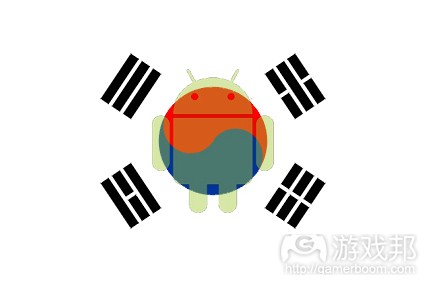
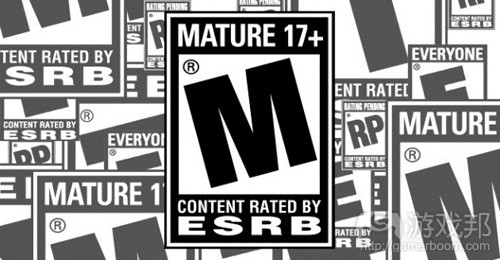
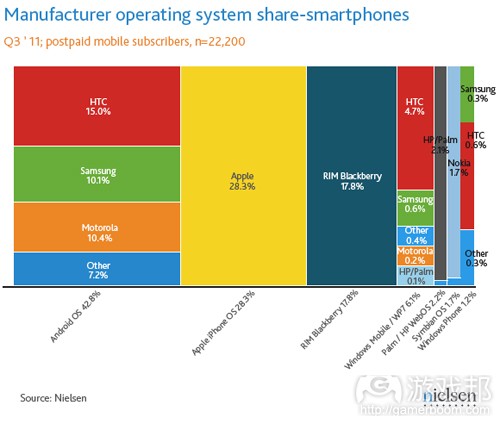
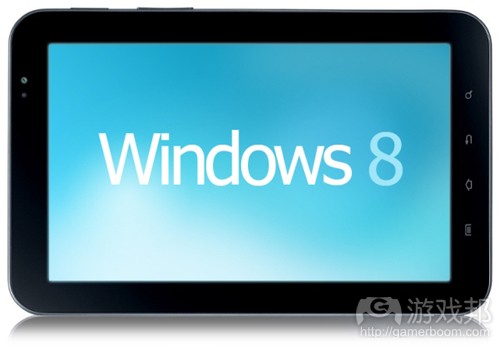
.jpg)
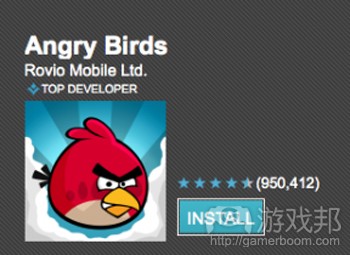














 闽公网安备35020302001549号
闽公网安备35020302001549号